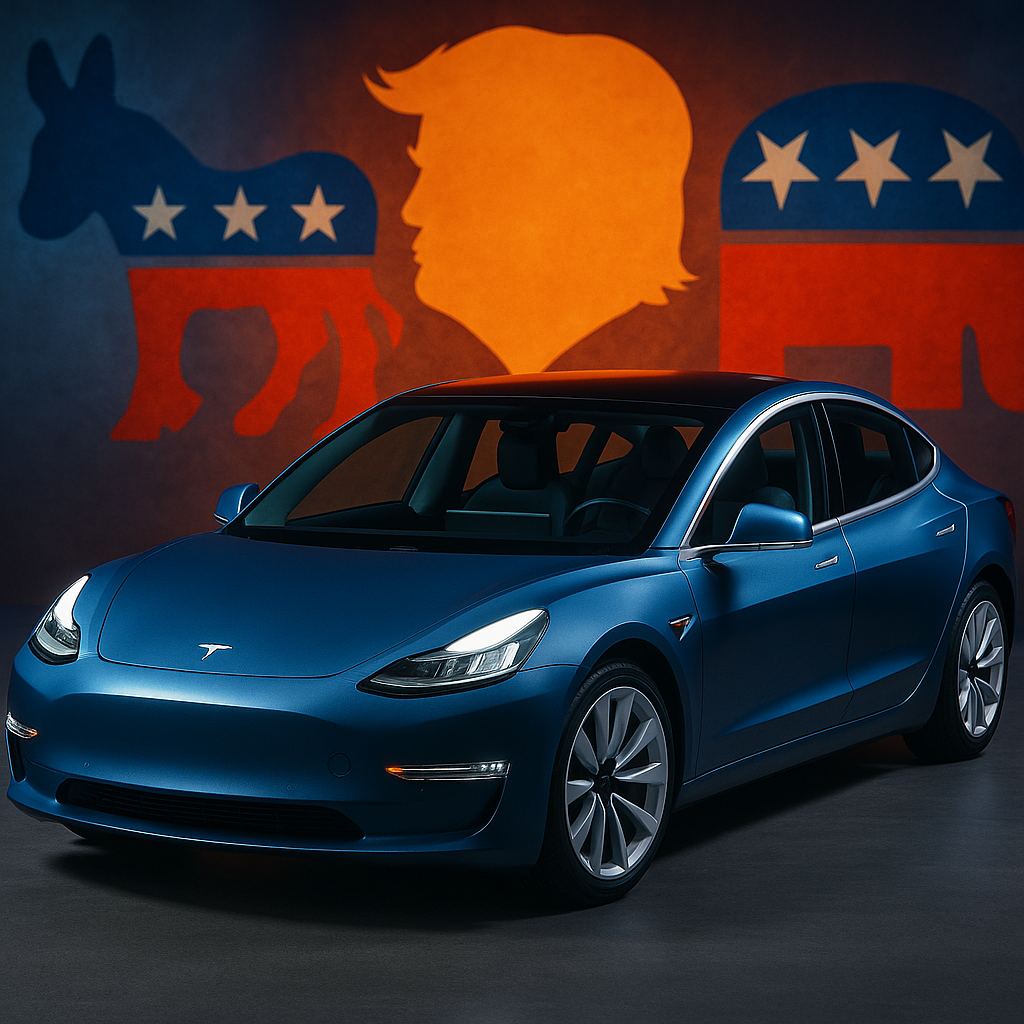
By Elke Porter | WBN News Global | May 7, 2025
Once admired for its innovation, sustainability, and forward-thinking design, Tesla has experienced a shift in public perception. Once the darling of the electric vehicle (EV) revolution, the company is now at the center of debates surrounding not only its technology but also its leadership, political affiliations, and public image.
Much of this shift is due to Tesla CEO Elon Musk’s increasing involvement in political discourse. His personal opinions, shared on X (formerly Twitter), often make headlines — not for innovation, but for controversy. This raises a larger question: Should brands get involved in politics?
While political engagement can humanize a company or show moral leadership, it can also alienate customers. Brand trust is built on reliability and value, not polarizing opinions.
This dynamic plays out differently across borders. In Canada, corporate political engagement is more subdued and carefully managed. Canadians tend to value neutrality, especially from brands. In contrast, in the U.S., consumer culture is more reactive, and political stances can attract as much loyalty as backlash. Tesla’s image in Canada remains more about technology and green transportation, while in the U.S., it’s increasingly seen through a political lens.
Elon Musk’s personal political commentary has brought significant backlash — not only to him, but to his family and the Tesla brand. His children have been publicly targeted, his family scrutinized, and his fans split. Longtime customers and Tesla enthusiasts have expressed disappointment, feeling forced to defend or distance themselves from the brand. What once felt like a movement toward sustainable innovation now feels overshadowed by the personality behind it.
A website known as “Dogequest” has allegedly published personal details of Tesla owners across the United States, sparking concerns over privacy and security. The site, which appears in the wake of anti-Elon Musk protests across the country, displays names, addresses, and phone numbers of Tesla owners on an interactive map and uses an image of a Molotov cocktail as its cursor.
The website’s operators claim they will only remove Tesla owners’ information if they provide proof that they have sold their vehicles.
On top of this, competition is heating up. Brands like Rivian, Lucid, Ford, and Volkswagen are gaining ground, offering EVs with less baggage and more focus on the driving experience. Other competition includes several brands that are actively working on self-driving and hydrogen-powered vehicles — often as part of the next wave of innovation beyond traditional EVs.
The lesson? When brands cross into politics, they risk becoming symbols rather than services. Businesses should be aware: when consumers buy a product, they don’t necessarily want to buy a political identity with it. Staying focused on innovation, ethics, and customer experience may be the smartest path forward.
#Tesla Controversy #Brand Politics #Elon Musk Backlash #EV Revolution #Tesla Vs Rivals #Brand Identity Crisis #Political Brands #Electric Vehicle News #WBN News Global #Elke Porter
Connect with Elke at Westcoast German Media or on LinkedIn: Elke Porter or contact her on WhatsApp: +1 604 828 8788


